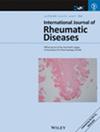Vitamin D Status in Paraguayan Children With Autoimmune Diseases
Abstract
Introduction
Vitamin D plays a crucial role in modulating the immune system. Numerous studies have elucidated the association between low serum levels of vitamin D and autoimmune diseases. Vitamin D deficiency has been implicated in systemic lupus erythematosus, rheumatoid arthritis (RA), Hashimoto's thyroiditis, juvenile dermatomyositis, inflammatory bowel disease, among others.
Objective
This study aims to assess the vitamin D levels in a cohort of pediatric patients diagnosed with autoimmune diseases.
Methodology
This descriptive study, complemented with an analytical cross-sectional component, enrolled individuals under the age of 18 diagnosed with autoimmune disorders who underwent vitamin D assessment. The study spanned from January 2016 to December 2020 and was conducted across three specialized clinics.
Results
Among the 81 pediatric patients with autoimmune pathologies enrolled during the study period, 60 (74.04%) were female. The mean age of the participants at the time of the study was 9 years, ranging from 2 to 17 years old. Of the total cohort, 78 individuals (96.3%) were Latin-American. The most prevalent diagnosis was Juvenile Idiopathic Arthritis (JIA) in 53 patients (65.43%), followed by autoimmune thyroiditis in 9 patients (11.11%), systemic lupus erythematosus (SLE) in 8 patients (9.88%), and other conditions in 11 patients (11.11%), including dermatomyositis and celiac disease. Regarding vitamin D levels, the mean concentration was 24.69 ng/mL. Specifically, 19 patients (23.46%) had sufficient levels (≥ 30 ng/mL), 41 patients (50.62%) had insufficiency, 20 patients (24.69%) had deficiency, and 1 patient (1.23%) had severe deficiency. No statistically significant differences were observed between vitamin D levels and sex (p = 0.82), age (p = 0.88), disease remission (p = 0.97), antinuclear antibody (ANA) value (p = 0.78), or season of the year.
Conclusion
Our findings suggest that the currently referenced levels of vitamin D do not exhibit a significant correlation with disease activity in pediatric patients with autoimmune diseases.

 求助内容:
求助内容: 应助结果提醒方式:
应助结果提醒方式:


